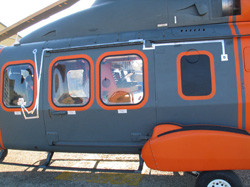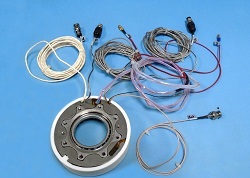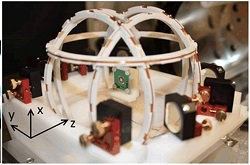Fast response to noisy helicopters
The Clean Sky initiative is a European aeronautical research programme working on technologies to produce less noisy and more fuel-efficient aircraft. One of its objectives is to develop a tool to minimise the noise impact of helicopters on the ground. The goal is a system that can be activated 'on-the-fly' from fast on-board predictions of ground noise levels based on noise from sensors on the helicopter itself. This requires reliable noise predictions based on actual flight conditions. The accuracy of such a model depends on the quantity and quality of experimental data that go into it. The EU-funded ANCORA project met the challenge in a series of experimental flights using on-board and ground-based microphones. Data collected from flights over a grid of 30 microphones were used to determine the transfer function between the helicopter noise measured on the aircraft and that received on the ground. All results from the flight tests and data analysis are available in a database. Tests were carried out on a small propeller aircraft because the test helicopter was unavailable for a long period of time. However, maximum commonality with originally planned measurement systems, flight procedures and data analysis was maintained. ANCORA demonstrated the feasibility of placing surface microphones on a helicopter fuselage and on a small turboprop plane, and developed a robust noise measurement system that can easily be deployed quickly and cost effectively. The advanced methodology for determining the transfer function can now be adapted following the flight test campaign on the original helicopter at a later date.
Keywords
Helicopters, ground noise, sensors, aircraft, transfer function







